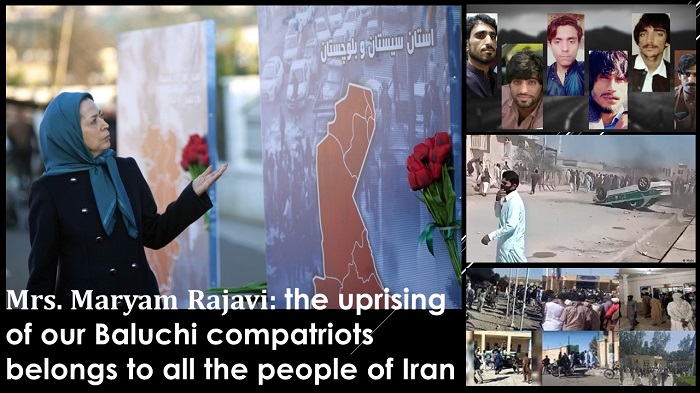
Protests in Sistan and Baluchistan Province broke out on February 22 after Revolutionary Guards (IRGC) opened fire on fuel porters who were protesting the construction of a deep trench on the Iran-Pakistan border, killing ten porters and wounding five more.
Protests continued for more than a week
The National Council of Resistance of Iran (NCRI), and the People’s Mujahedin of Iran (PMOI / MEK Iran) reported that the shootings sparked a rebellion in the impoverished province that has continued for more than a week and garnered international attention.
Human rights groups have decried the Iranian regime’s brutal suppression of the protests and called attention to the desperate conditions imposed by the regime on the ethnic minority Sunni Baluchs living in the province.
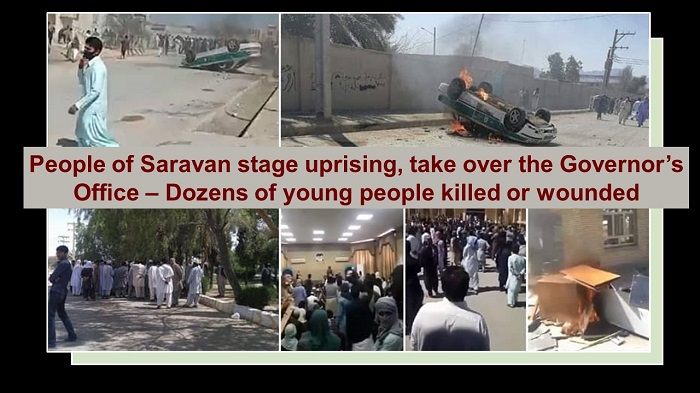
Discrimination Becomes Law
It is difficult to understand the protests in Sistan and Baluchistan Province without having a broader understanding of the history of the treatment of ethnic minorities in Iran and neglect of the regions where they live.
The provinces of Kurdistan and Sistan and Baluchistan have always been home to ethnic minorities in Iran, and Kurds and Baluchis have suffered from discrimination under previous regimes. (The MEK political platform calls for an end to such discrimination and includes a plan for an autonomous Iranian Kurdistan.)
When the mullahs took power in 1979, this discrimination became codified into law. The Islamic Republic is based on the concept of Velayat-e-Faqih (or absolute rule by the Supreme Leader) and requires adherence to Islamic law as interpreted by Shia clerics.
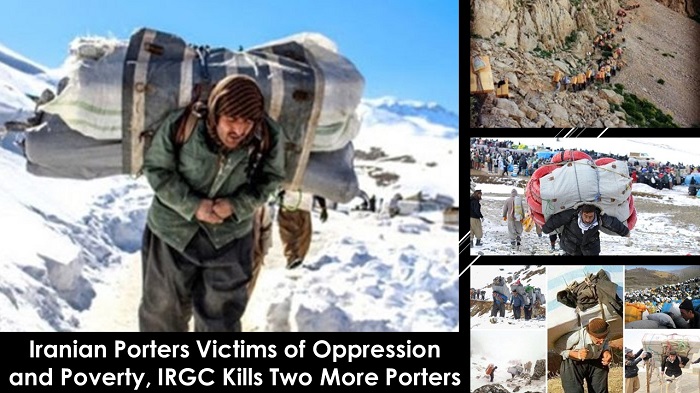
Iranians are also obligated to pledge their allegiance to the Shia Supreme Leader and his clerics. Kurds and Baluchs are intimidated and arrested for simply existing. The regime needs no proof of a crime. For example, the fact that one is a Baluch is enough to deny entry into university.
several violent assaults into Kurdistan and Sistan and Baluchistan
and Sistan and Baluchistan Provinces to enforce its political and clerical power and squash any possible resistance. At the same time, the government refused to allocate industry to the two provinces, effectively cutting off employment sources and relegating the people to crushing poverty.
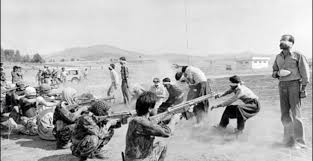
Left with few options, some people in these provinces began transporting fuel over the border for money. Fuel porters work in dangerous conditions and are frequently ambushed by the Revolutionary Guards, who run their own, much larger fuel smuggling operation. Dozens of fuel porters are killed every year. The job exists because for many there is no alternative. Transporting fuel puts food on their families’ tables.
The Iranian regime would like the world to believe that the fuel porters in Sistan and Baluchistan are lawless rebels, but the truth is that these are desperate people who have been forced to make desperate decisions because their leaders have turned their backs on them.
It is fitting that their crime is selling fuel—a resource that belongs to the people and should ensure that every Iranian thrives—and that they are forced to sell it because their leaders have plundered the country’s wealth on foreign wars and spend what little is left on every province but theirs.
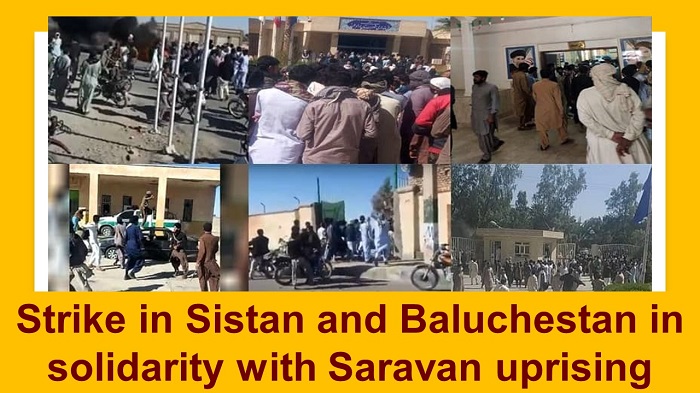
‘It seems that Sistan does not matter’
Even state-run media are acknowledging the problem. In an article dated February 24, the state-run Mostaghel daily addressed the role that discrimination plays in poverty and subsequent rebellion.
“Due to the Sunni religious context, special security attention is paid to the border provinces of Iran. Border provinces, like the suburbs of large cities, suffer from poverty and injuries stem from poverty. The specific injuries of these provinces have not been considered worthy of attention by the capital’s officials for many years.
“The first reason for these problems is the elimination of these provinces from the perspective of the country’s industry and trade managers. If you work for sustainable development only in Sistan and Baluchistan province, you will quickly notice the terrible gap between this province and the rest of the country,” the article wrote.
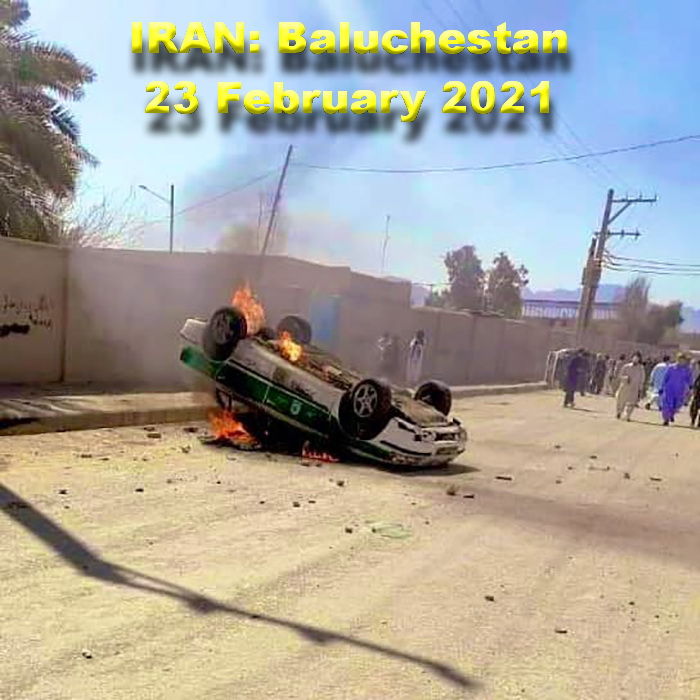
“During these years, the issue of education of children in Sistan and Baluchistan has been neglected. According to statistics published in ISNA in August last year, the illiteracy rate in Sarbaz county is close to 37 percent.
The same report states that there are no accurate statistics on the access of women in this province to schools. Statistics show that the situation of Sistani children’s access to technology for accessing online classrooms has been very disappointing,” the daily added.
The article ended on a dire note: “Sistan and Baluchistan province is culturally completely abandoned, and this vicious cycle is repeated until it reaches an irreversible point. It seems that Sistan does not matter.”
and People’s Mojahedin Organization of Iran – MEK IRAN – YouTube







